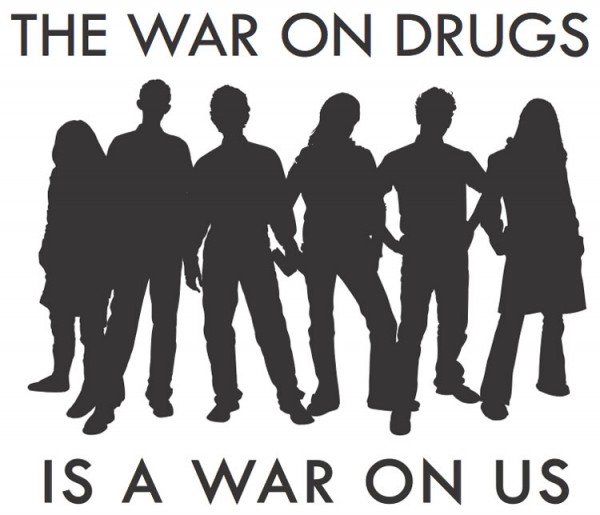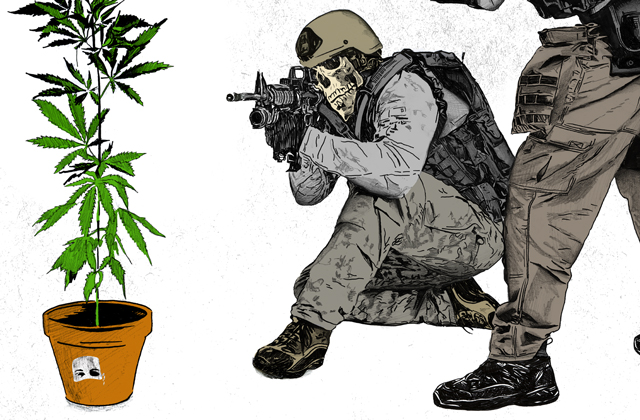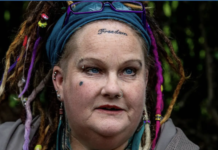
Associate Minister of Health Peter Dunne looked reasonable and pragmatic in his response to the latest evidence from eminent institutions this week that the war on drugs does more harm than good. Mr Dunne repeated his call for an approach to drug law reform based on ‘compassion, innovation and proportion’. Meanwhile, other political parties were caught behind the tide of public opinion. It was disappointing that there was little sign of leadership or intelligent engagement on the issue of drugs in society from the major parties. National’s obviously a non-starter for any constructive change from the status quo that gives knighthoods to liquor barons and safe National Party seats to tobacco lobbyists. Labour said it wasn’t even thinking about drug reform, thereby ignoring a significant health and justice issue and condoning current harm and persecution. New Zealand First played up to populist fears with claims about upholding traditional values (which assume alcohol is ok but cannabis is not). But even the Greens don’t have a current position on cannabis reform, apparently forgetting their founding focus on addressing the social injustice caused by prohibition. It’s not like the harm from drug prohibition is a new issue, or one that’s not progressing elsewhere, but overall, the mainstream parties were too scared or too conservative to meet Peter Dunne’s challenge of well-informed discussion focusing on health impacts rather than crime.
Emerging UMR public survey results show a softening in public attitudes to the use of medical marijuana to alleviate the pain and suffering of those who are terminally ill. In New Zealand’s celebrity culture, it helps the cause that sporting legend Martin Crowe, TV personality Paul Holmes, and figures of bravery and compassion such as former CTU head Helen Kelly and Pike River widow Anna Osborne admit to using cannabis to help with the pain and sickness from terminal disease and the side effects of legal pharmaceutical drugs.
But the Ministry of Health says 1.4 million New Zealanders – or about half the adult population have used illicit drugs, as did 485,000 of us in the last year alone. Cannabis is the most common illicit drug used, and it’s more common among adolescents. By age 21, 80% of young people will have tried it at least once.
Only 2% of cannabis users report any legal issues arising from use, and there’s been a decline in cannabis arrests and convictions since the 1990s. Official and unofficial ‘diversions’ have led to both police and courts exercising discretion about who and to what degree cannabis use is prosecuted. These are indications of an ‘unofficial’ softening of authorities’ responses to cannabis related crime, while resources are targeted at higher priorities.
Victoria University Law Professor Mark Bennett says ‘if… an offence will not be followed up on, and there’s little danger of detection and / or prosecution, there are questions (raised) from both a rule of law and a democratic perspective”. Police and Courts’ interpretation of the law undermines its consistent administration and subverts the will of Parliament – even if that will is almost 40 years old, outdated and impossible to enforce.
But NZ still has one of the highest incarceration rates for cannabis in the world. “Petty drug users fill our jails”. Since 1994 there have been at least half a million drug arrests – comprising 11% of all ‘crime’. 85% of these were for cannabis, and 87% for personal amounts. But obviously these arrests and convictions fall disproportionately on some areas of society. Police and court discretion is vulnerable to bias and abuse; it can be arbitrary and target certain subgroups. Indeed, Maori are three times more likely to be arrested and convicted for cannabis than non-Maori. Maori aged 17-21 make up 37% of those convicted of possession and/or use of an illicit drug or utensil. 2,800 people are imprisoned on minor drug charges, and nearly as many are imprisoned for possession of small amounts as are for dealing. Between 2007 and 2011 almost 13,000 people aged under 25 were convicted for drug offenses, and their custodial sentences cost the government more than $59million over that time. In the process, young people are criminalised, and have their future chances jeopardised for relatively minor acts that most people (especially their peer group) do at least once in their lives.
Research repeatedly finds that prohibition is not an effective way to treat drug problems in society. According to the Global Cannabis Commission Report and echoed by the 2011 NZ Law Commission Report and the latest John Hopkins University / Lancet article and more, ‘Harsh drug control regimes undermine the well-being and health of drug users and their communities’. They are ‘expensive to run, intrusive on privacy and socially divisive’. The laws are applied unfairly and in a socially discriminatory and inequitable way. They are inefficient (there’s no evidence of reduction in use after arrest or conviction). Many of these challenges relate to inherent ‘difficulties in attempting to criminalise a substance that’s widely used, therefore making the law weak on both ‘normative and practical grounds’. Criminalising cannabis use causes more harm than the use itself.
The recent UMR poll showed that the New Zealand public were evenly split over the question of whether cannabis should be legalised for personal use. Obviously fears remain about how to protect children and young people from harm, and from the effects of smoking. Even though there’s no evidence of an upsurge in drug use after liberalisation (in fact the opposite is true), the fears of a drug crazed society affected by ‘reefer madness’ are hard to dispel. But what is clear, is that in the face of reasonable and scientific evidence, the current cannabis law is illegitimate, unjustified, and unjust. It’s outdated, hypocritical with regard to the place of harmful legal drugs in our society, and punishes those who should be free to seek help on health grounds. New Zealand’s punitive drug laws fail the tests of ‘compassion, innovation and proportion’, and our mainstream political parties fail society at large with their lack of courage in dealing with laws that make cannabis use a crime.
Disclaimer
Christine Rose is employed as Kauri Dieback Community Co-ordinator by the Auckland Council. All opinions expressed herein are Christine’s own. No opinion or views expressed in this blog or any other media, shall be construed as the opinion of the Council or any other organisation.






I’ve only just sent these off to a person in dire pain and is becoming increasingly desperate.
Gee, thanks Boingboing !
http://boingboing.net/2014/12/23/cancer-and-cannabis-how-i-lea.html
http://boingboing.net/2011/05/03/interview-with-medic-2.html
http://boingboing.net/2014/09/10/cannabis-pharmacy-the-practic.html
Re crooks who control our lives ?
Here’s something to make you blow your rice bubbles all over your cat.
http://boingboing.net/2016/04/02/four-days-in-and-the-bbc-hasn.html
http://boingboing.net/2016/04/01/after-biggest-bribery-scandal.html?utm_source=moreatbb&utm_medium=nextpost&utm_campaign=nextpostthumbnails
Debt and booze equals power and control.
The fact is the multi national drug companies are anti natural remedies.
Agree with you completely – excellent writing. This should hopefully wake up some compassion from our asleep politicians. You hit the nail on the head.
” Criminalizing cannabis use causes more harm than the use itself. ” – well written Christine.
Someone recently said that the worst and mostly only negative side effect of smoking cannabis is getting arrested.
The insane and perpetual — ” all for profit ” war on drugs is as insidious as the ” all for profit ” perpetual wars with the US having 835 bases worldwide ! !
Who are the real war mongering; multi-level terrorists and the real idiots not serving humanity ? We know.
Nancy Reagan ( Just say no ) was dead wrong and so are the corporate owned lobbyists who co-wrote most of these out of date and extremely harmful anti-drug laws. How many millions of good people worldwide are rotting in prison for possessing a small amount of marijuana ? How many greedy and criminal corporations push to keep the laws as they are for their gain ? ( Alcohol / Tobacco ! – etc. . . )
The dead weight; out of sink and out of touch politicians need to retire and be put out to pasture. They are not promoting — well being; compassion and freedom of choice for citizens and for the health of a society.
http://www.becker-posner-blog.com/2014/02/why-marijuana-should-be-decriminalized-becker.html
https://sites.psu.edu/joekearns70eportfolio/essays/
http://norml.org/aboutmarijuana/item/marijuana-decriminalization-talking-points-2
“But even the Greens don’t have a current position on cannabis reform”
Absolutely not true.
The Greens have a clear policy on cannabis. It took me less than 2 minutes to find it.
“Specific Policy Points
1.Immediate Steps
More funding for drug education programmes in schools and communities.
Establish a Ministerial Advisory Group on Drug Education to evaluate and improve drug education. (Greens initiated the drug education best practise guidelines published by the Ministry of Youth Development).
Prioritise the prosecution of crimes such as violent offences ahead of personal cannabis possession.
Enable doctors to prescribe cannabis products for severely ill patients.
2. Medium Term Steps
– Ban broadcast alcohol advertising and direct-to-consumer advertising of pharmaceuticals.
– Introduce a legal age limit of 18 years for personal cannabis use.
– Define in law the limits on growing cannabis for personal use.
– Ensure it remains an offence to drive while under the influence of cannabis.
– Support strong integration of, and better resourcing for, mental health and substance misuse services.
– Place tighter controls on highly addictive prescription drugs.
3. Longer Term Steps
– Review all drug-related legislation to ensure consistency and a harm reduction approach.
– Monitor and evaluate the effects of the removal of personal penalties for cannabis use, drug education programmes, drug addiction treatment programmes, and pharmaceutical controls.”
And so why your statement that the Greens don’t have a current position? It’s clearly an inaccurate statement.
I’m quoting Kevin Hague and other sources. You might find this you quote above is out of date. It surprised and disappointed me too
Out of date?
It’s their current policy from their website. Today.
As a green party member I am not aware of any change to the policy.
And Kevin Hague can’t change the policy. It’s democratic. Decided by the membership.
Well that’s what I would have thought too, but seems things in the Green Party aren’t what they used to be
I have contacted my local Greens branch and asked if their stance on drug law has changed from that published on the Greens website.
I also asked if Green MPs could not have a different stand to published Green Party policy, if the process for determining policy had changed.
The answer to both questions is a clear “No”.
Green Party policy on drug laws is exactly as stated on their website, which I copied in my first comment above.
The process by which Green Party policy is determined is still democratic, and still open to the membership. Green Party MP’s cannot change policy according the their whims.
Your statements are inaccurate Christine. I don’t care what conversation you say you had with Kevin Hague or anyone else within the Greens. They don’t have the authority to change Green Party policy, and they have not.
The policy is clear. It’s published clearly on their website.
I think you owe the Greens an apology. What you have stated in your article is inaccurate, and misleading. You need to check your facts and put this right.
From one very pissed off Green Party member.
I am with you all the way Christine Rose, keep up the fine work.
I’m all in favour of cannabis law reform, but there is the thorny question of the kids, under 10 years of age, who are taking up smoking both tobacco and cannabis and/or synthetic cannabinol dis. The mental health sector sees these kids regularly, usually when they reach teenagehood and have embarked on a life of self-destructive activities: self-harm from the inner pain of dysfunctional family life, and /or criminal activity to fund their addiction. Putting an age limit on access is futile, as we all know kids get access one way or another to both alcohol and cigarettes, despite the current legal restrictions. There needs to be a much deeper discussion and understanding of society’s need for mind altering substances and the causes of substance abuse first and foremost.
While i have chosen to not use any of the recreational drugs for over 25 years (legal & illegal) & advise others to do the same the only sane policy is to decriminalize at the very least. Having a legal market & regulations & rules along with open education has to be better than the current situation with dealers targeting any sale they can get. Any semi intelligent children/young people can see the hypocrisy that claims alcohol/tobacco is OK while other drugs are bad is just a joke.
The Green Party’s policy is decriminalisation of cannabis use. At the last election the media picked up on this and tried to stir controversy. The Green Party stood its ground. There’s no point picking on the only political party that has this policy. Instead it should be praised for having it.
Esoteric Pineapple, note Kevin Hague’s statement that ‘The Green Party is currently reviewing its own policy on drug law reform but has not reached a position on the decriminalisation of cannabis’. It seems their policy from before the last election is no longer a current one.
http://www.asms.org.nz/news/other-news/2016/03/31/drug-law-reform-health-issue-says-green-party/
Thanks – I will keep an eye out for where things are at now.
Drug trafficking is a major money earner for the NWO – always has been.
http://investigate911.org/Oligarchy.htm
Prohibition leads to huge profits for organised crime syndicates the Asian gangs that have infiltrated NZ are making big money distributing method through existing gang networks here in NZ
The Corrections and Justice industry employs a lot of people and is very profitable for those involved hence changing the laws would lead to severe job losses in a country already struggling with employment issues.
It’s ironic that our fearless leader John Key owns shares in a legal drug manufacturing company…Highwater Vineyard… (I like what they did with the name).
Comments are closed.